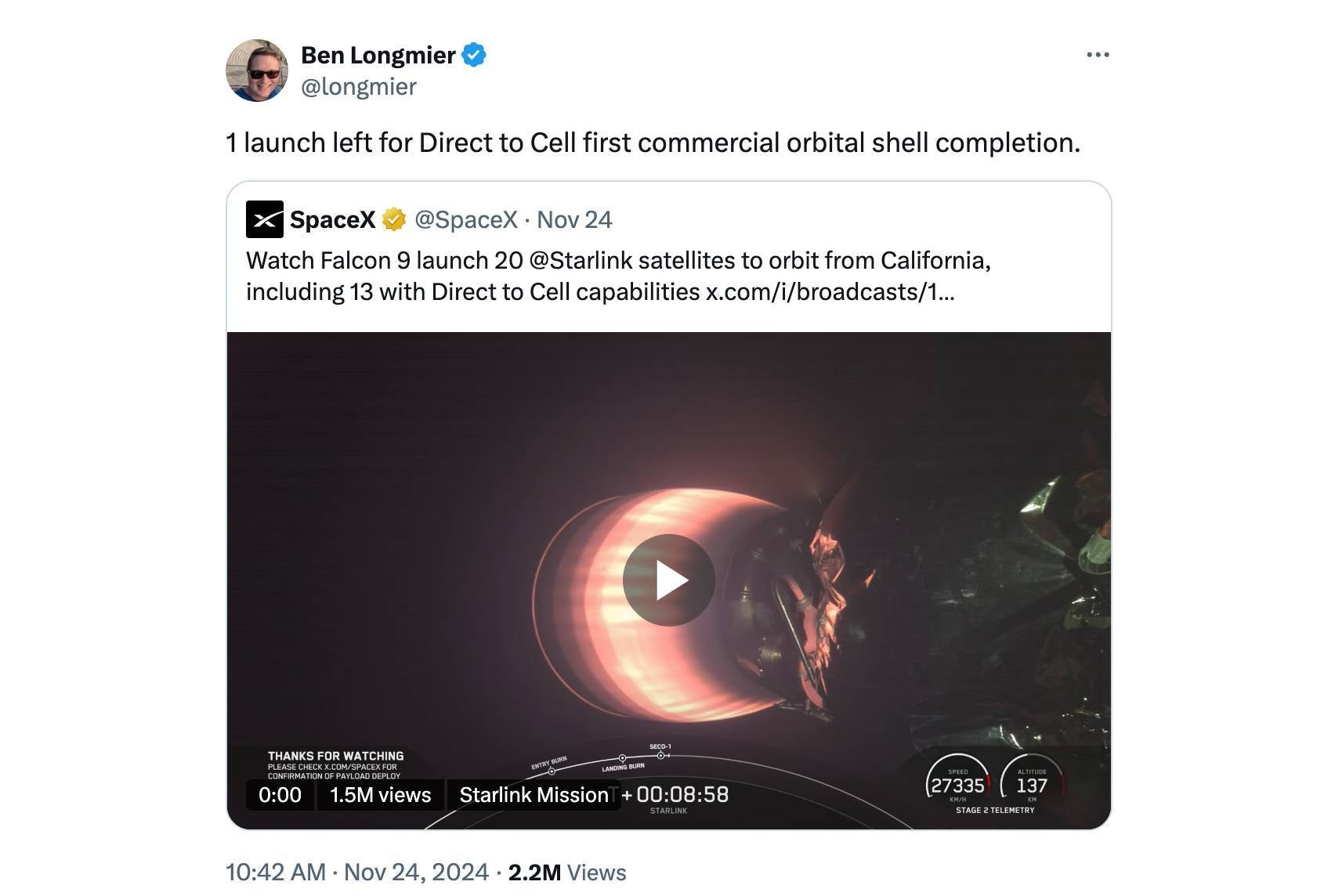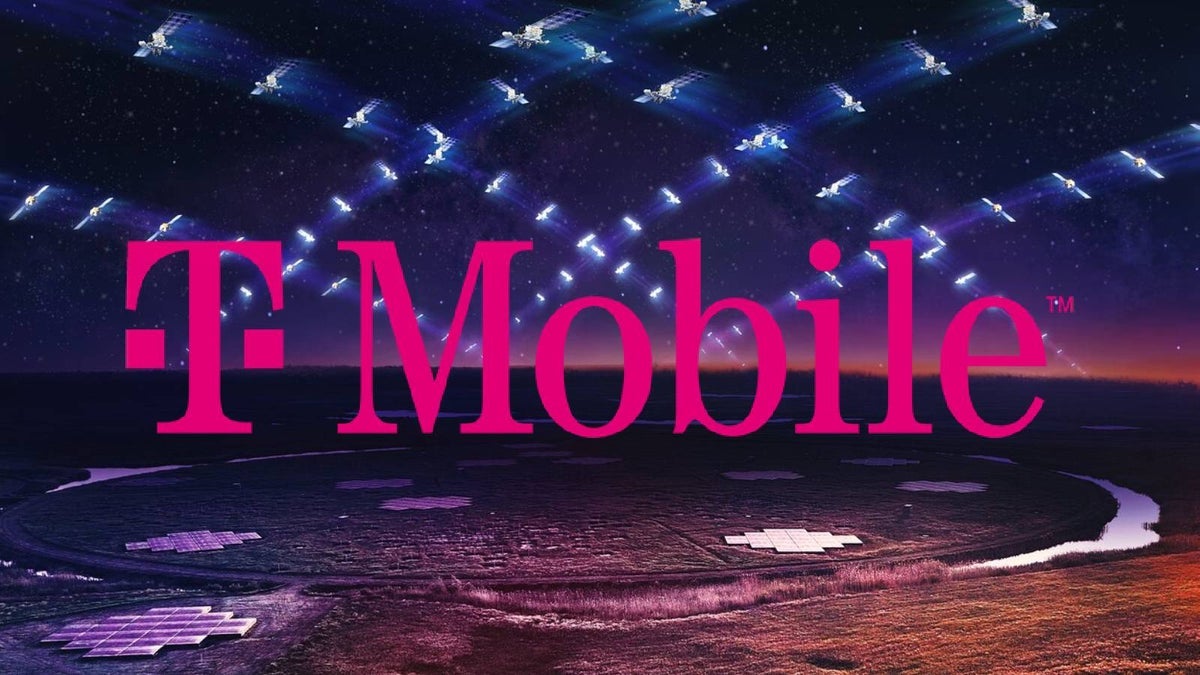and SpaceX announced plans to pair the former’s wireless network and latter’s satellite constellation to provide universal coverage, a major regulatory hurdle has been cleared.
The news comes shortly after Ben Longmier, Senior Director of Satellite Engineering at SpaceX announced that the
.

SpaceX will be ready to launch the Direct to Cell service after one more launch. | Image Credit – Ben Longmier, X
The two companies had originally planned to launch space-based texting before the end of 2024 but it was increasingly looking like that wouldn’t be possible chiefly due to SpaceX’s insistence that the FCC relax its aggregate power flux-density PFD limit. This was opposed by competitors, who said that a change in the limit would interfere with their operations.
While it’s not known if the FCC has agreed to bend its rules, it’s likely that SpaceX’s role in restoring connectivity during communications blackouts caused by recent hurricanes in the US may have helped it demonstrate that the waiver it requested wouldn’t harm adjacent-band terrestrial networks.
Alternatively, it’s possible that T-Mobilewill adhere to the current out-of-band emissions limits, although this may impact the quality of service.
Regardless. this is an important step and now that approval has been granted, we may see T-Mobile roll out satellite texting before the end of the year.
A T-Mobile exec had previously revealed that the service wouldn’t have the same restrictions as other satellite-powered features that require you to have a clear view of the sky to establish a connection. This means that it will work mostly everywhere, including when you are traveling and your phone is in your pocket.
